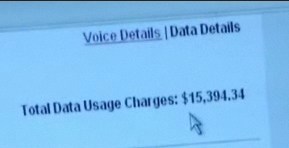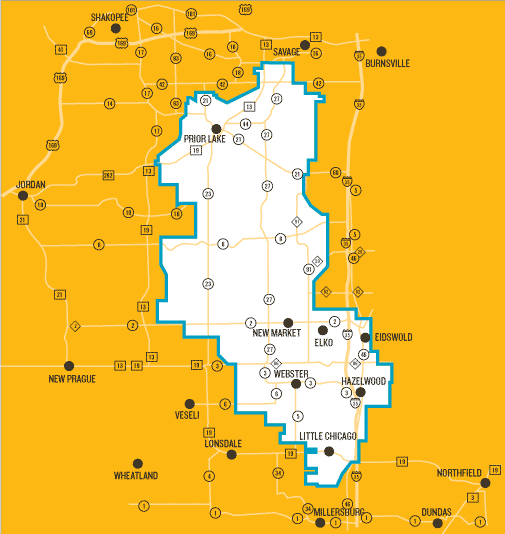 An administrative law judge reviewing the proposed sale of Verizon landlines to Frontier Communications has formally recommended the Illinois Commerce Commission (ICC) reject the deal.
An administrative law judge reviewing the proposed sale of Verizon landlines to Frontier Communications has formally recommended the Illinois Commerce Commission (ICC) reject the deal.
Allowing Verizon to sell 600,000 Illinois phone lines, mostly in less populated areas of the state, would likely harm the quality of service customers receive from their landline provider according to Judge Lisa Tapia.
Tapia was given the responsibility to review the transaction’s merits before the deal moves before the ICC for final consideration. Her 46-page report concludes that Frontier’s existing Illinois customers would likely be harmed, along with existing Verizon customers, because of the enormous debt Frontier Communications will take on as part of the deal. Tapia writes the economic impact of the deal “will diminish Frontier’s ability to perform its duties to provide adequate, reliable, efficient, safe and least-cost public utility service.”
According to Staff witness Mr. McClerren, both Frontier Illinois operating ILECs (local phone companies) and Verizon have, in recent years, had some difficulty meeting the minimum key standards contained in Part 730. The key Part 730 standards are Toll & Assistance Operator Answer Time, Directory Assistance Operator Answer Time, Repair Office Answer Time, Business Office Answer Time, Service Installations, Out of Service for Less Than 24 Hours, and Trouble Reports.
Ms. McClerren characterized the performance of the nine Frontier Illinois operating ILECs as poor relative to the Repair Office Answer Time and Out of Service for Less Than 24 Hours standards and unacceptable relative to the Business Office Answer Time standard. Mr. McClerren concluded that given Frontier’s poorer performance relative to Verizon’s performance on Repair Office Answer Time, Business Office Answer Time, and Out of Service for Less Than 24 Hours , service quality would likely decline in the current Verizon North and Verizon South territories if the proposed reorganization is allowed to occur. Mr. McClerren further stated that because Frontier had continuously failed to satisfy the Business Office Answer Time, Staff expressed to Frontier representatives that it was prepared to initiate a hearing under Section 730.120 of the Act for the purpose of imposing penalties.
The evidence shows there is a significant risk that problems could occur if the transition is made too prematurely so as to create a potential for harm to Illinois customers. When weighed against the many risks of the Transaction, including, among others, the risk of systems integration, the purported benefits of the Transaction do not justify approval.
Of particular concern to Judge Tapia is the impact on Frontier’s finances and operating ability to take on more than 600,000 new customers in Illinois. Despite company promises to the contrary, Tapia’s report notes we’ve been down this road before, particularly with FairPoint Communications, which went bankrupt late last year.
The evidence shows there is a significant risk that problems could occur if the transition is made too prematurely so as to create a potential for harm to Illinois customers. When weighed against the many risks of the Transaction, including, among others, the risk of systems integration, the purported benefits of the Transaction do not justify approval.
[…]
For instance, Frontier’s total Illinois access lines would be increasing from 97,000 to over 670,000 lines. Frontier would also be almost tripling its size and will be burdened with an enormous amount of approximately $3.3 billion in debt. The financial pressure along with more wirelines to handle leads the Commission to conclude that service quality will certainly be diminished. The ultimate consequences of diminished quality service will be borne by Illinois customers.
What about broadband and Frontier’s promises to expand it into rural communities across Illinois? Judge Tapia’s report questions whether Frontier will do any better than Verizon did.
The record also does not support a finding that Frontier will be any more effective than Verizon in expanding the scope and quality of broadband services in the Illinois service areas it proposes to acquire from Verizon. To the contrary, the evidence shows that it is very unlikely that a smaller, less experienced operator would be able to support such an investment.
 The findings also call attention to Frontier’s practice of paying out more in dividends to shareholders than the company actually earns from customers. The International Brotherhood of Electrical Workers (IBEW), which has consistently argued against Verizon spinoffs, says no company can expect to succeed by paying out more than they earn just to keep a favorable stock price. The IBEW has correctly predicted the outcome of other Verizon spinoffs, and warned the Verizon-Frontier deal is simply more of the same.
The findings also call attention to Frontier’s practice of paying out more in dividends to shareholders than the company actually earns from customers. The International Brotherhood of Electrical Workers (IBEW), which has consistently argued against Verizon spinoffs, says no company can expect to succeed by paying out more than they earn just to keep a favorable stock price. The IBEW has correctly predicted the outcome of other Verizon spinoffs, and warned the Verizon-Frontier deal is simply more of the same.
IBEW pointed to a 2007 Montana Public Service Commission (“PSC”) decision in which the PSC rejected a proposed merger and acquisition because “In normal utility operations, retained earnings provide a vital source of financial strength for capital investment and as reserves that are available during unexpected financial strains. Regularly paying out dividends in excess of net earnings by a utility is inappropriate and risky because having insufficient reserves on hand could adversely affect the utility’s ability to provide adequate service.”
IBEW stated that the Montana PSC’s findings apply equally to Frontier. The IBEW endorsed the reasoning of the Montana PSC and reached the same conclusion about Frontier.
According to IBEW, Frontier only has two or three more years before it will have paid out all of its retained earnings to stockholders, based on its performance in the first half of 2009. IBEW also stated that two Wall Street financial analysts have independently found that Frontier’s shareholders’ equity is likely to become negative in 2012 or 2013. After that, Frontier’s dividend would have to be reduced to no more than its net income – a likely dividend cut of 60% or more. IBEW argued that without this Transaction, Frontier’s business model will fail within two or three years. IBEW asserted that Frontier does not plan to change its approach to business. Frontier still plans to pay out more to shareholders than it earns in net income and that there is no scenario where Frontier plans to pay out less in dividends than it earns in net income during the 2010 to 2014 period examined.
The report agrees with the IBEW position:
Frontier’s risky business model is a concern. The Commission agrees with IBEW that in normal utility operations, retained earnings provide a vital source of financial strength for capital investment and as reserves that are available during unexpected financial strains. Regularly paying out dividends in excess of net earnings by a utility is inappropriate and risky because having insufficient reserves on hand could adversely affect the utility’s ability to provide adequate service. Based on the record, this has been Frontier’s business practice. However, Frontier testified that it has revised its dividend policy. According to Frontier, it currently pays an annual cash dividend of $1.00 per share of Frontier common stock. Frontier after the closing of the proposed Transaction, intends to change its dividend policy to pay an annual cash dividend of $0.75 per share of Frontier common stock, reducing its dividend by 25% – from $1.00 to $0.75 per share – effective with the close of the Transaction.
The Commission does not find Frontier’s assertion credible. Specifically, that it plans to revise its dividend policy (at the discretion of it Board of Directors) because of this proposed Transaction when this has been Frontier’s approach to business for years.
Hundreds of pages of comments from consumers and other interested parties have been recorded by the ICC, many in opposition to the proposed deal. The ICC’s next step is to accept comments about the report, which have already been forthcoming.
Dan McCarthy, Chief Operating Officer of Frontier Communications was among the first.
“Today’s proposed order by an administrative law judge in Illinois ignores the numerous public interest benefits outlined in the complete record developed in the Frontier/Verizon transaction. This record fully addresses the issues raised by the ALJ. We are confident that once the full Illinois Commerce Commission reviews the record, they will vote to support the transaction,” McCarthy said in a prepared statement.
“Frontier has formally committed to expand broadband to 85 percent of the households in the Verizon Illinois service areas covered by the transaction and spend in excess of $40 million to accomplish this effort,” the statement says, further noting that the company already provides DSL broadband service to 90 percent of its existing footprint in the state.
The full ICC is expected to rule by the end of April.
Among the Illinois communities impacted by the transaction:
Chatham, Divernon, Elkhart, Illiopolis, Jacksonville, Lincoln, Loami, New Berlin, Pawnee, Pleasant Plains, Sherman, Virden, Waverly and Williamsville.


 Subscribe
Subscribe













